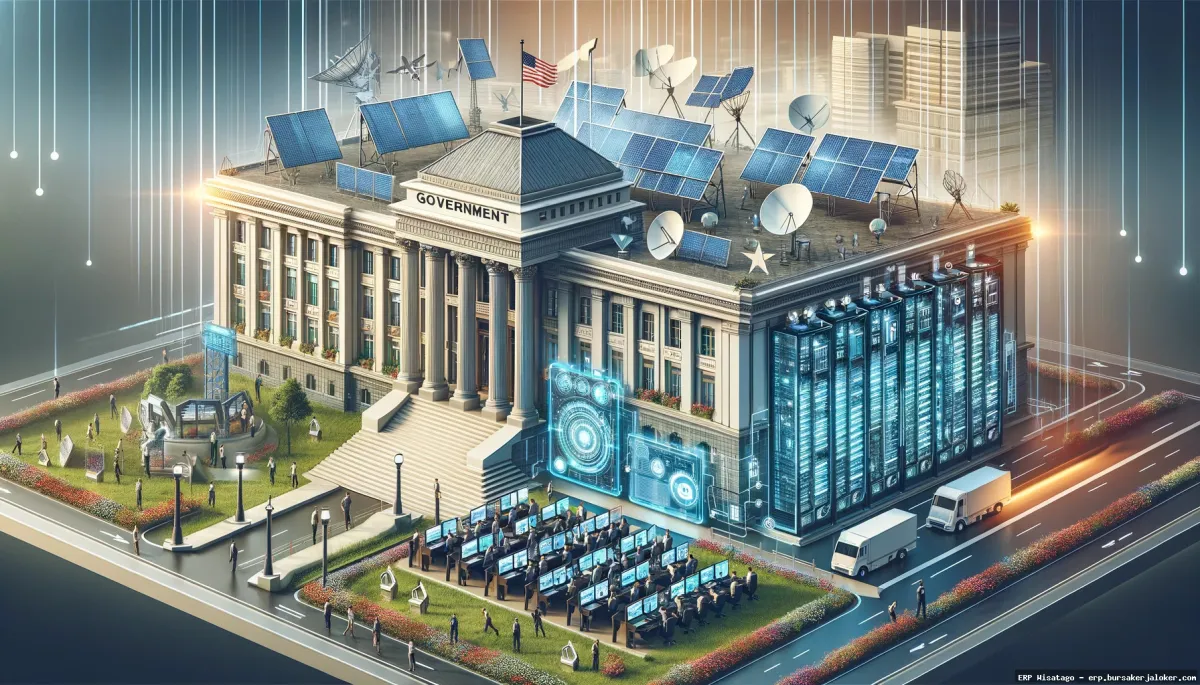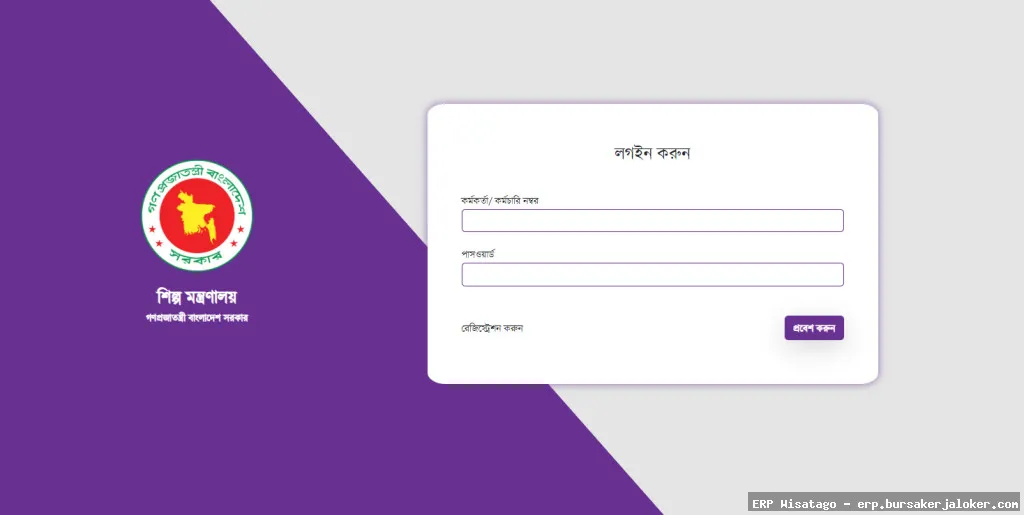ERP For Government Agencies: Complete Guide, Features and Details
Government agencies, often perceived as bureaucratic and slow-moving, are increasingly under pressure to modernize and improve efficiency. Citizens expect seamless services, transparent operations, and responsible use of taxpayer dollars. This pressure, coupled with the complexities of managing vast amounts of data, diverse departments, and stringent regulations, makes Enterprise Resource Planning (ERP) systems a crucial tool for government organizations. But choosing and implementing the right ERP is a significant undertaking, fraught with potential pitfalls if not approached strategically.
This article aims to provide a comprehensive guide to ERP for government agencies. We’ll explore the specific challenges government entities face, the benefits ERP can deliver, key features to look for, and practical advice on navigating the implementation process. Think of this as a roadmap to help you understand whether ERP is the right solution for your agency and, if so, how to ensure a successful deployment.

Having been involved in several ERP implementations across both private and public sectors, I’ve witnessed firsthand the transformative power of a well-executed ERP project. However, I’ve also seen projects derail due to poor planning, inadequate stakeholder engagement, and a failure to understand the unique needs of the organization. My goal is to share these experiences and insights to help you avoid common mistakes and maximize the potential of ERP in your agency.
What is ERP and Why is it Important for Government?
Enterprise Resource Planning (ERP) is a type of software system that integrates and automates core business processes, providing a centralized view of data and operations across an organization. Think of it as the central nervous system for your agency, connecting various departments like finance, human resources, procurement, asset management, and citizen services into a unified system. Instead of siloed departments operating with disparate systems, ERP allows for seamless data flow and real-time visibility into key performance indicators. For more information, you can refer to RMM as an additional resource.
Key Benefits of ERP for Government Agencies
- Improved Efficiency and Productivity: Automating manual processes, streamlining workflows, and eliminating redundant data entry frees up employees to focus on more strategic tasks.
- Enhanced Transparency and Accountability: Centralized data and audit trails provide greater visibility into agency operations, making it easier to track spending, monitor performance, and ensure compliance.
- Better Decision-Making: Real-time data and analytics empower leaders to make informed decisions based on accurate and up-to-date information.
- Improved Citizen Services: Streamlined processes and online portals make it easier for citizens to access information, submit requests, and interact with the agency.
- Reduced Costs: Optimizing resource allocation, reducing waste, and improving efficiency can lead to significant cost savings.
- Enhanced Compliance: ERP systems can help agencies comply with complex regulations and reporting requirements.
Common Challenges Faced by Government Agencies
While the benefits of ERP are compelling, government agencies face unique challenges that can make implementation more complex than in the private sector.

Specific Challenges
- Budget Constraints: Government agencies often operate with limited budgets, making it difficult to justify the upfront cost of an ERP system.
- Legacy Systems: Many agencies rely on outdated legacy systems that are difficult to integrate with modern ERP solutions.
- Resistance to Change: Employees may be resistant to adopting new technology and processes, especially if they are comfortable with the status quo.
- Complex Regulations: Government agencies must comply with a myriad of regulations, which can add complexity to the ERP implementation process.
- Data Security and Privacy: Protecting sensitive citizen data is paramount, requiring robust security measures and strict adherence to privacy regulations.
- Procurement Processes: Government procurement processes can be lengthy and complex, potentially delaying the ERP implementation.
Key Features to Look for in a Government ERP System
Not all ERP systems are created equal. When evaluating ERP solutions for your government agency, it’s crucial to look for features specifically designed to address your unique needs.
Essential ERP Features
- Fund Accounting: This is critical for tracking and managing public funds in accordance with government accounting standards. Look for features that support encumbrance accounting, budget control, and grant management.
- Grant Management: Automate the grant lifecycle from application to award to reporting, ensuring compliance and transparency.
- Budgeting and Forecasting: Develop accurate budgets and forecasts based on historical data and real-time performance metrics.
- Procurement Management: Streamline the procurement process, from requisition to purchase order to payment, ensuring compliance with procurement regulations.
- Asset Management: Track and manage all agency assets, including buildings, equipment, and vehicles, optimizing utilization and reducing maintenance costs.
- Human Resources Management (HRM): Manage employee data, payroll, benefits, and performance, ensuring compliance with labor laws and regulations.
- Citizen Relationship Management (CRM): Manage citizen interactions, track service requests, and provide personalized services.
- Reporting and Analytics: Generate comprehensive reports and dashboards to monitor performance, identify trends, and make informed decisions.
- Security and Compliance: Ensure the security of sensitive data and compliance with relevant regulations, such as HIPAA, GDPR, and federal data security standards.
- Integration Capabilities: The ability to integrate with existing systems, such as GIS (Geographic Information Systems) or specialized departmental applications, is essential.
- Workflow Automation: Automate repetitive tasks and streamline processes to improve efficiency and reduce errors.
- Cloud-Based Deployment: Consider a cloud-based ERP solution for increased flexibility, scalability, and reduced IT infrastructure costs.
Choosing the Right ERP Solution: A Step-by-Step Guide
Selecting the right ERP solution is a critical decision that can significantly impact the success of your project. Here’s a step-by-step guide to help you navigate the selection process:
ERP Selection Steps
- Define Your Requirements: Conduct a thorough needs assessment to identify the specific requirements of your agency. Involve stakeholders from all departments to ensure that all needs are considered. Document these requirements in a detailed Request for Information (RFI) and Request for Proposal (RFP).
- Research and Evaluate Vendors: Research potential ERP vendors and evaluate their solutions based on your requirements. Consider factors such as functionality, cost, implementation timeline, vendor reputation, and customer references. Look for vendors with specific experience in the government sector.
- Develop an RFP: Create a detailed RFP that outlines your requirements, budget, and timeline. This document will serve as the basis for evaluating vendor proposals.
- Evaluate Proposals: Carefully evaluate vendor proposals based on your pre-defined criteria. Conduct demonstrations and site visits to get a better understanding of the solutions and the vendors.
- Conduct a Proof of Concept (POC): If possible, conduct a POC with a shortlist of vendors to test the solution in a real-world environment. This will help you identify any potential issues and ensure that the solution meets your needs.
- Negotiate the Contract: Negotiate a contract with the selected vendor that clearly outlines the scope of work, deliverables, timelines, and payment terms.
- Secure Executive Sponsorship: Ensure you have strong support from senior leadership. Their backing is critical for overcoming resistance to change and securing the resources needed for a successful implementation.
ERP Implementation: Best Practices for Government Agencies
Implementing an ERP system is a complex undertaking that requires careful planning and execution. Here are some best practices to ensure a successful implementation:

Implementation Best Practices
- Form a Dedicated Project Team: Assemble a dedicated project team with representatives from all key departments. The team should include a project manager, business analysts, technical experts, and change management specialists.
- Develop a Detailed Implementation Plan: Create a comprehensive implementation plan that outlines the scope of work, timelines, milestones, and responsibilities.
- Data Migration Strategy: Plan your data migration strategy carefully. Cleanse and validate your data before migrating it to the new ERP system. A phased approach to data migration is often recommended.
- Provide Comprehensive Training: Provide comprehensive training to all users on the new ERP system. Use a variety of training methods, such as classroom training, online tutorials, and job aids.
- Manage Change Effectively: Implement a change management plan to address employee concerns and resistance to change. Communicate clearly and frequently about the benefits of the new system.
- Test Thoroughly: Test the ERP system thoroughly before go-live. Conduct unit testing, integration testing, and user acceptance testing.
- Go-Live Strategy: Choose a go-live strategy that minimizes disruption to agency operations. Consider a phased rollout, starting with a pilot group.
- Post-Implementation Support: Provide ongoing support to users after go-live. Monitor system performance and address any issues promptly.
- Regular Communication: Maintain open communication with all stakeholders throughout the implementation process.
The Future of ERP in Government
The future of ERP in government is likely to be shaped by several key trends, including cloud computing, artificial intelligence (AI), and the Internet of Things (IoT).
Emerging Trends
- Cloud ERP: Cloud-based ERP solutions offer increased flexibility, scalability, and reduced IT infrastructure costs. They also enable easier access to data and applications from anywhere, at any time.
- AI-Powered ERP: AI can be used to automate tasks, improve decision-making, and personalize citizen services. For example, AI-powered chatbots can provide 24/7 support to citizens.
- IoT Integration: Integrating IoT devices with ERP systems can provide real-time data on asset performance, energy consumption, and other key metrics. This data can be used to optimize operations and improve efficiency.
- Mobile ERP: Mobile ERP applications allow employees to access data and perform tasks from their smartphones or tablets, improving productivity and responsiveness.
Conclusion
ERP systems offer significant benefits for government agencies, enabling them to improve efficiency, enhance transparency, and provide better citizen services. However, successful implementation requires careful planning, strong leadership, and a commitment to change management. By understanding the unique challenges faced by government agencies and following the best practices outlined in this article, you can maximize the potential of ERP and transform your agency into a more efficient, transparent, and citizen-centric organization. Don’t underestimate the cultural shift required and the importance of involving key stakeholders early and often in the process. A successful ERP implementation is not just about technology; it’s about people and processes working together seamlessly.
Frequently Asked Questions (FAQ) about ERP for government agencies
What is ERP for government agencies?
ERP for government agencies is a topic that many people search for information about. This article provides comprehensive and reliable information about ERP for government agencies to help you understand it better.
Why is ERP for government agencies important?
ERP for government agencies has an important role because it can help you get the information you need. Understanding ERP for government agencies will provide benefits and advantages for you.
How can I get more information about ERP for government agencies?
For more information about ERP for government agencies, you can read the complete article above or contact relevant official sources. We also recommend that you always update your information as details can change over time.
